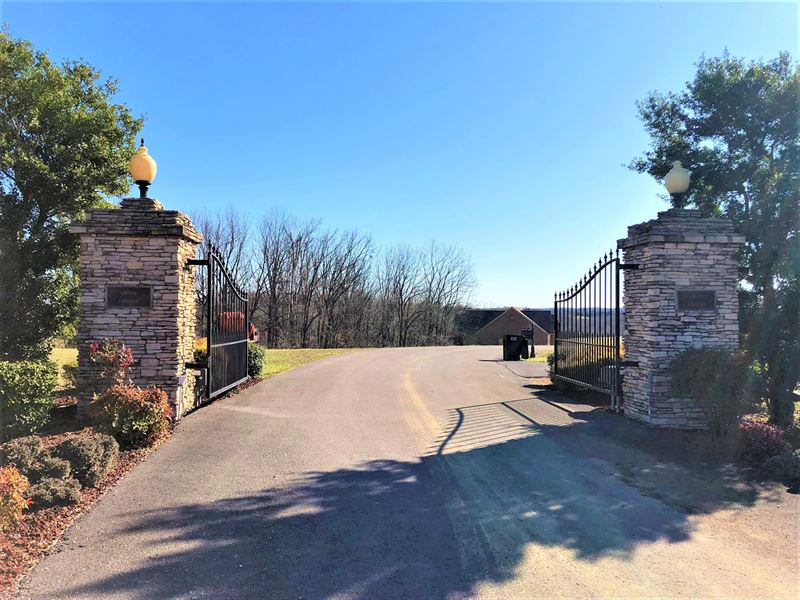Table of Content
- Correctional officer response to fights
- NC judge spends night in jail with man he sentenced
- COs exposed to fentanyl, other drugs while searching mail
- The role of the probation/parole officer
- Information gathering in the institution
- Prison board: Pa. overcrowding often due to parolees' lack of home plan
- Pennsylvania Counties
Every jurisdiction has different policies and procedures in place that govern the field portion of the home placement investigation. Regardless of how your agency conducts field work, officer safety is the priority. Once the prep work is complete, the re-entry coordinator submits the home placement to the appropriate probation/parole office for the rest of the investigation to take place. A supervisor assigns the investigation out to a probation/parole officer. Prior to parole consideration, an inmate must complete a home plan and have it approved by the state Board of Parole and Probation. The plan should provide a stable environment that will provide support and assistance to the offender, according to the board’s website at

If you have not already done so, you should try to clear up any outstanding warrants for your arrest or detainers that may have been left unresolved. The list of results will show the inmate’s number, full name, race, date of birth, current location, and committing county. Finally, the re-entry coordinator conducts an address search on an internet mapping system to verify the address exists or pulls property records to verify who owns the proposed residence. Commissioners Chairman and prison board Chairman George F. Halcovage Jr. said the board recognizes the problem.
Correctional officer response to fights
Select the option or tab named “Internet Options ”, “Options ”, “Preferences ” or “Settings ”. “When we have a homeless person fit for Vinny’s program, we will sponsor them for the program,” Nastasi said. Pastor Vince Murray and his wife, Joanne, started the Open Arms Ministry in 2008 as a clothing and food ministry.
Reaching out to local contacts from other agencies in the criminal justice field can provide valuable insight into the proposed residence. This is much easier for the probation/parole officer to do, because most of the time they are assigned to one or two counties and the relationships are already in place. Such networking might be difficult for a re-entry coordinator to complete.
NC judge spends night in jail with man he sentenced
If you require language interpretation services, please let your institutional parole agent know and he/she will make the appropriate arrangements for you. What if you don’t have a family to live with or a job lined up for when you get out? Depending on your criminal history, it is possible for you to live by yourself as long as you have a legitimate job that will provide you with enough income to meet your personal needs. It is important to submit an appropriate parole plan during this phase.
You will have to provide the parole staff with your proposed parole plan. A parole plan describes where you plan to live and where you will be working when you are released from prison. A field agent will visit your proposed home and workplace to see if the arrangements are suitable. The Board can parole you to an approved home plan, a private facility, or to a CCC for some period of time. If you are paroled to a CCC, the DOC will determine a bed date for you, depending on where you will be living and whether you have any special treatment needs. CCC’s are operated by the DOC or its private contractors—not the PBPP—so if you have any questions about your placement, you should contact your institutional counselor for current information.
COs exposed to fentanyl, other drugs while searching mail
You will have your parole consideration interview with a Hearing Examiner and possibly a member of the Board. They will ask you some questions about yourself and your background, your plans for the future, and any questions they may have after reviewing your file before the interview. All Board Members and Hearing Examiners have met many people in your situation, and they will appreciate your truthfulness. The Pennsylvania Department of Corrections has an inmate locator feature on their website where the public can search for people in prison in Oregon.
Meanwhile, Servants To All mainly deals with people who are already homeless. Due to the small organization’s work load with its My Father’s House program in Pottsville, Albert Nastasi, program director, said they are unable to assist those looking to get out of prison on parole find housing. If there is a detainer lodged against you, you can write to the authority who issued the warrant, explain that you are being considered for parole and that you know you have a detainer pending based on the warrant.
How minding your performance levels will get you though a tough day in corrections
Once this information is collected, the re-entry coordinator begins a background investigation into the residents. This starts with checking public online court records and prison databases to see if any of the residents have been incarcerated in the prison system or are currently or have previously been on probation or parole. The home placement investigation process begins in the institution with the counselor or re-entry coordinator who will provide an outline of what the probation/parole officer may find at the residence. Unannounced home placement investigations can be dangerous, as it’s not uncommon to find wanted subjects, firearms, narcotics and drug paraphernalia. If you are concerned or unsure about potential threats at the residence, reach out to local law enforcement to assist you in providing security at the scene. If the residents are uncooperative or refuse to answer questions or grant you access to the residence, leave and consider denying the placement.
A thorough home placement investigation can set a positive tone for the probation or parole case. Placing an offender in a positive environment allows the offender to make changes to their lifestyle without negative influences. An offender going into a home where the current residents are abusing drugs or alcohol puts the offender in an environment that will work against everything they and the officer are trying to accomplish. Probation/parole officers have to make judgment calls when approving or denying home placements. The probation/parole officer needs to feel they can effectively manage the offender in the residence and manage whatever officer safety risks are present.
It could take a re-entry coordinator a few hours to reach out to the right person, but it might only take the probation/parole officer five minutes. Almost every professional working in the corrections system is carrying a large caseload and anything that saves time is valuable. The state Department of Corrections lifted its three-month-long restriction on accepting new inmates at the prison on Aug. 17. Warden Gene Berdanier said there are about 12 inmates at any given time in the prison who are eligible for parole, but they often do not have an approved home plan and cannot be released. However, the prison has no choice but to release them once they serve their maximum sentence.
There are another 37,000 people in local county jails/prisons and 7,500 in federal prisons within the state. The Pennsylvania Department of Corrections is the state agency in charge of inmate records, facilities, and inmates themselves. They make it easy to find inmates in the state with their inmate locator. Some inmate records may be easy to find, and some others much more difficult.
Your institutional parole agent will obtain educational, vocational, social, medical, psychological and psychiatric data to develop your summarization report. Next, the re-entry coordinator reviews police reports and minutes of testimony regarding the offender’s crime and the pre-sentence investigations to ensure none of the residents are victims, witnesses or co-defendants. The offender might not be the only one you are trying to protect during a placement investigation. Corrections1 is revolutionizing the way in which the corrections community finds relevant news, identifies important training information, interacts with each other and researches product purchases and suppliers. It has become the most comprehensive and trusted online destination for correctional professionals nationwide. There was an average of 234 inmates at the prison in September, peaking at 257 for the month.
These forms will include background information on your current offense and your sentence status, detailing your exact minimum and maximum dates. If you are unable to develop an approved parole plan, contact your institutional parole agent and DOC counselor for information about placement in a community corrections center . You cannot live in Section 8 or other federally-funded housing unless you were previously on the lease. The probation/parole officer may provide valuable information about the residence’s condition and the current residents. This allows the re-entry coordinator to determine whether to move forward with placement by submitting it to the probation/parole office. In some cases, the probation/parole officer may be able to tell the re-entry coordinator whether the placement will be approved before it is even submitted to their office.
Prison board: Pa. overcrowding often due to parolees' lack of home plan
Conducting a search is subject to our Terms of Service and Privacy Notice. You acknowledge that StateCourts.org is not a consumer reporting agency under the FCRA and the information provided cannot be used for any unlawful purpose. Look for security cameras, signs that may indicate the residents possess firearms or if there is a lot of foot traffic in and out of the residence. If the residence is in a city with its own police department, this may change the way the home placement visit is conducted versus one in a rural environment where assistance may be 20 minutes away.
Also during this time period, you will be interviewed by a member of the institutional parole staff, who will prepare a summarization report of your case for the PBPP. If your proposed parole plan involves living in another state, the requirements are regulated by the Interstate Compact. You must have been a resident of the other state or have close relatives living in that state. You must also have a job or viable means of financial support which does not include public assistance. Parole plan investigations in other states often take longer to investigate, so it is important that you submit your proposed parole plan to the institutional parole staff as soon as possible. Six months prior to your minimum sentence date… The Department of Corrections will gather and submit certain documents to the institutional parole staff so they can begin compiling a file for your parole review.




















